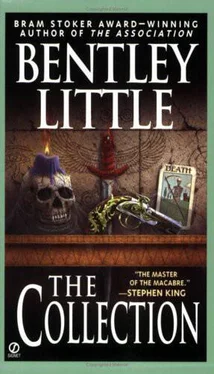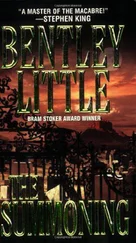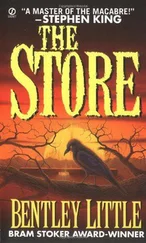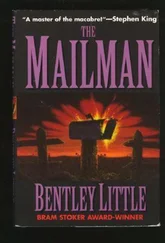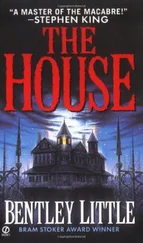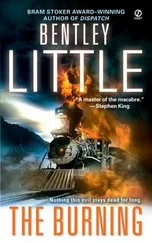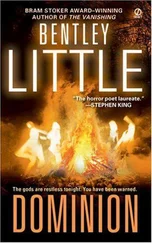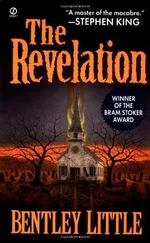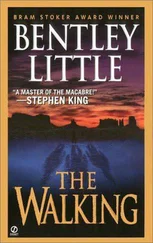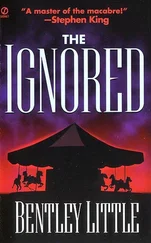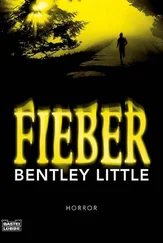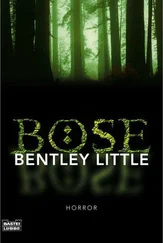Bentley Little - The Collection
Здесь есть возможность читать онлайн «Bentley Little - The Collection» весь текст электронной книги совершенно бесплатно (целиком полную версию без сокращений). В некоторых случаях можно слушать аудио, скачать через торрент в формате fb2 и присутствует краткое содержание. Жанр: Старинная литература, на английском языке. Описание произведения, (предисловие) а так же отзывы посетителей доступны на портале библиотеки ЛибКат.
- Название:The Collection
- Автор:
- Жанр:
- Год:неизвестен
- ISBN:нет данных
- Рейтинг книги:5 / 5. Голосов: 1
-
Избранное:Добавить в избранное
- Отзывы:
-
Ваша оценка:
The Collection: краткое содержание, описание и аннотация
Предлагаем к чтению аннотацию, описание, краткое содержание или предисловие (зависит от того, что написал сам автор книги «The Collection»). Если вы не нашли необходимую информацию о книге — напишите в комментариях, мы постараемся отыскать её.
How would you feel if your father's new bride was something dredged up from the bowels of hell?
What would you do if you discovered an old letter suggesting one of America's Founding Fathers had been a serial killer?
How long would you last in a mysterious border town that promised to let you in on one of its most gruesome secrets?
This is The Collection — thirty-two stories of hot blood and frigid terror that could have come only from the mind of Bentley Little. And that's a scary place to be.
He's been hailed by Dean Koontz for his "rock-'em, jolt-'em, shock-'em contemporary terror fiction." Now Little presents a 32-story collection that could only have come from an author with "a deft touch for the terrifying" (
).
From Publishers Weekly
Little (The Association) displays his darker side in the 32 mostly memorable stories that comprise this collection of unpublished and previously published stories. Drawing from a bizarre cauldron of influences (cited in brief introductions to each piece), Little tackles some disturbing topics, including pedophilia, family crucifixions, incest and bestiality. Indeed, even fans accustomed to the gore found in Little's novels may be taken aback by the manner in which characters carry out their fetishes and crimes. The main character in "Blood," for example, kills both little boys and grown men without remorse, believing that his macaroni and cheese craves human blood. The supernatural and the unexplained are common themes, but some plot lines are underdeveloped. In "Monteith," readers are left to ponder what would have happened had the main character confronted his wife about a one-word note - written in her hand - that turned his life upside down. Among Little's best offerings are "Bob," a chilling tale of mistaken identity, and "Pillow Talk," a witty yet sad story about bed linens that come to life and ultimately display more human traits than many of the characters in this collection. A fascinating glimpse into how Little's creativity has evolved over the years, this volume is a must-have for the author's fans despite its uneven nature.
From Booklist
Of the 32 spine tinglers in Little's gathering, some inevitably stand out. In "The Phonebook Man," the guy delivering the directory, once invited into a woman's house, changes his appearance drastically and refuses to leave. "Life with Father," one of the darkest stories in the collection, concerns a recycling obsession that leads to incest and murder. In "Roommates," Ray searches for one, only to get a strange batch of applicants, including a woman who believes her monkey is her daughter, a three-foot-tall albino, and a dirt-obsessed nurse. In "Bob," a group of women cleverly "sell" a young man on the idea of killing the abusive husband of a woman they know. And in "Pillow Talk," a man is shocked to find himself pursued sexually--by pillows. Little introduces each story by briefly explaining his inspiration for writing it. Little's often macabre, always sharp tales are snippets of everyday life given a creepy twist.
